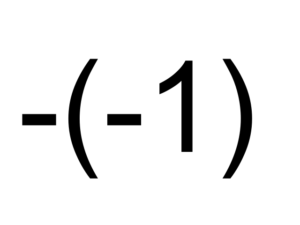A few years ago a user on Stack Exchange asked why the construction used in this English sentence is not considered a double negative.
If I don’t use the microphone, nobody will hear me.
This question was presumably prompted by the familiar admonition not to use a double negative. This warning refers to dialect constructions such as in this sentence:
If I don’t use no microphone, no one will hear me.
Notice that in the first clause both the verb and its direct object are negated. This is negative concord because the two negatives are intended to reinforce one another. They are in concord or agreement.
In standard English we would instead say:
If I don’t use the microphone, no one will hear me.
Leaving asside the question of whether non-standard forms of English should be used, the caution should not be understood literally. It does not mean that all uses of double negation violate the rules of formal English. A more precise statement of the rule would be: Standard English does not recognize negative concord as a valid construction.
In standard English double negatives cancel one another out to produce a positive as in mathematics. To illustrate this a teacher might ask the children to interpret the dialect sentence above as if it were standard English. The teacher guides them to this interpretation:
I must not use a microphone if I want to be heard.
This is nonsense, but it serves to illustrate an important point: double negatives are not forbidden in standard English, they simple cancel one another out. It is only an error if negative concord was intended. For example, this use of a double negative is good literary English:
Your complaints have not gone unheard.
The “not” and “un-” cancel one another out, so the sentence means:
Your complaints have been heard.
Though the emphasis is a little different. One negation serves to describe what the interlocutor fears while the second serves to indicate that it has not in fact taken place.
Now let us return to the question from Stack Exchange:
If I don’t use the microphone, nobody will hear me.
This sentence has two negations, but it does not display netagive concord. Nor do the negations cancel one another out (as in our example from literary English) since they are not in the same clause. Instead the two negations are in separate clauses joined in an if-then construct. We can simplify the sentence to this:
If no microphone, then no hearers.
We must use two negations in this sentence because the message is about two negations: negating the microphone negates the hearers.
A version of this post was originally published as an answer on Stack Exchange:
Why is, “If I don’t use the microphone, nobody will hear me,” not considered a double negative
